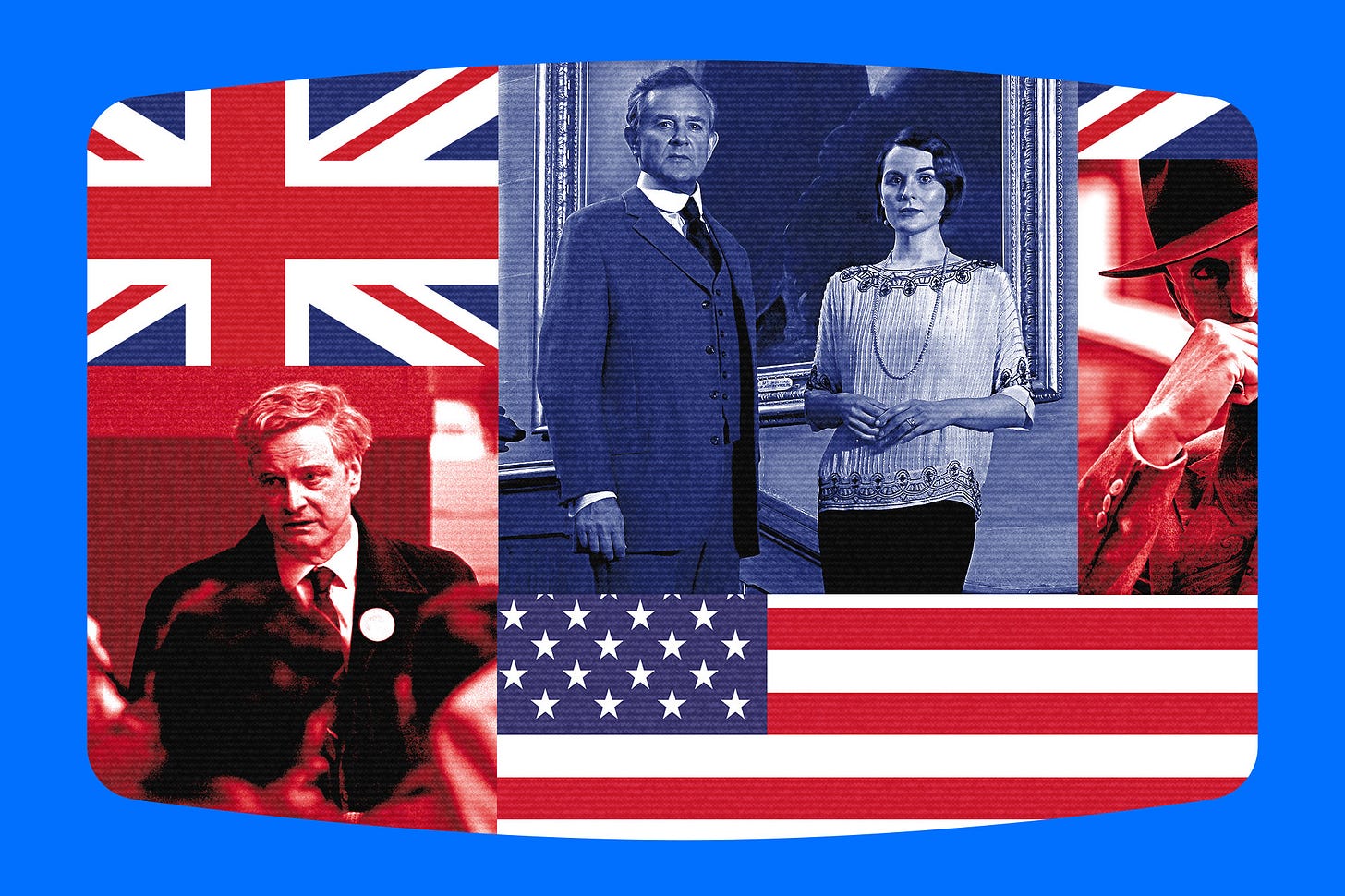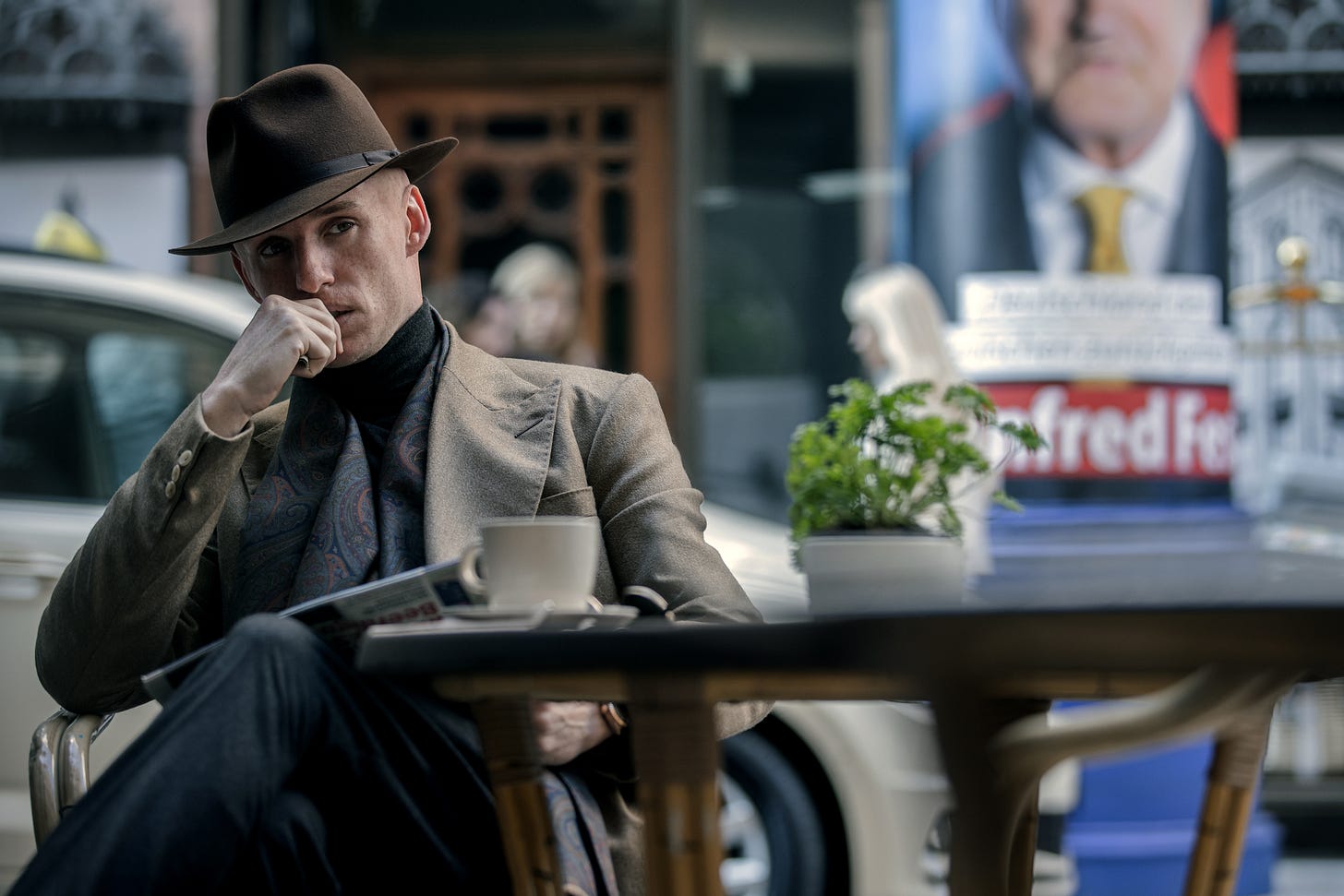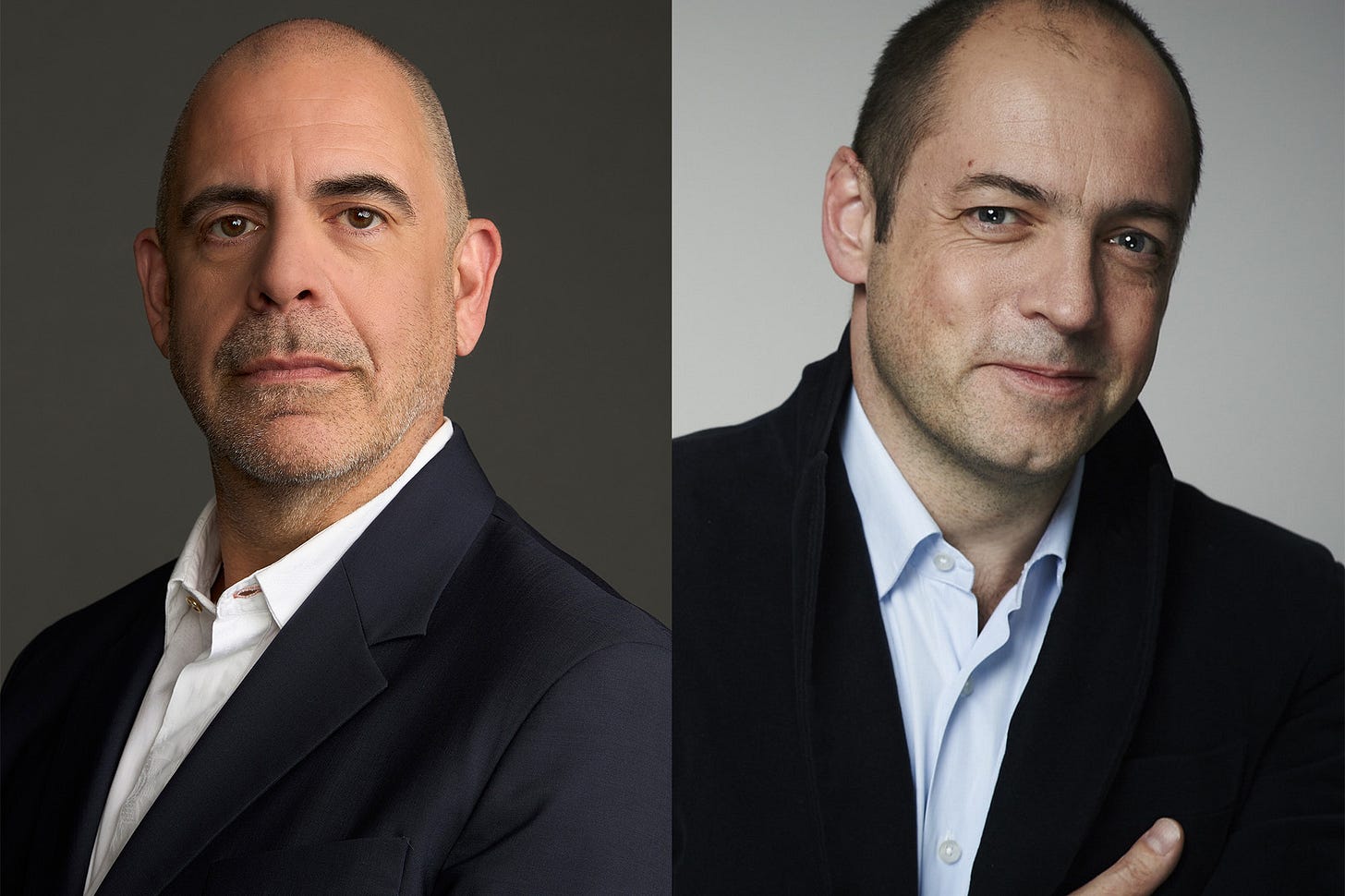The $3M Episode Squeeze: ‘Downton’ Duo Rethink How to Sell Prestige TV
Carnival Films' Gareth Neame & Nigel Marchant on navigating a budget-crunched global market and life inside NBCU

I cover int’l TV from London. I wrote about the U.K. company behind Netflix’s Adolescence, Ireland’s “conveyer belt” of unscripted production and Blue Cheap: 4 new ways of making TV only look expensive. I’m at manori@theankler.com. As a paid subscriber to Series Business, you’ll receive reports from Manori and Elaine Low for a global perspective on the TV business. This is a standalone subscription separate from The Ankler. For access to Series Business and everything The Ankler publishes, including Sean McNulty’s The Wakeup and Richard Rushfield, subscribe here.
Carnival Films made the biggest British drama of the last two decades. But could it have made the same TV show today? Unlikely.
When Downton Abbey launched in September 2010 as a co-production between U.K. broadcaster ITV and PBS Masterpiece, no one could have predicted the lush period drama that made stars of Michelle Dockery, Lily James and Dan Stevens would become the show that cracked the global industry wide open for British producers.
U.K. shows had always been high-quality additions to a schedule but never commanded the same sales figures internationally. But suddenly, NBCUniversal, which acquired the London-based Carnival in 2008 for a reported £30 million (about $55 million at the time), was out there selling Downton the way they would any other American studio show. (Carnival produced the show for broadcasters ITV and PBS Masterpiece. NBCU, acting as international distributor for the program, sold it overseas.) And it worked.
The U.K. government used Downton’s overseas success to launch the country’s high-end TV tax credit — nicknamed the “Downton Abbey tax break” — which, over the last 13 years, has helped turn Britain into a thriving global production hub. But now, that tax incentive has also played a part in making shows so eye-wateringly expensive to produce locally that even Carnival CEO Gareth Neame tells me, “We made Downton at a price point that would be really quite unimaginable in today’s terms” (that is, an estimated $1.5 million per episode in 2011, which comes to roughly $3 million today).
Period fare has also moved on. The movies — with Downton Abbey: The Grand Finale set for release on Sept. 12 — may be box office hits for Universal Pictures, but British producers often tell me how difficult it is in the current market to get opulent costume forays greenlit for TV. “It’s quite ironic that these well-made historical shows continue to appeal to audiences around the world, and yet, for some reason, it’s often a genre that commissioning editors or buyers are hesitant about,” Neame says.
No matter. In the past year, Carnival has brought its production prowess firmly into the present with its co-pro of propulsive spy thriller The Day of the Jackal, Sky and Peacock’s contemporary retelling of the 1971 novel and 1973 film, and the forthcoming All Her Fault — also for the NBCU streamer — an adaptation of Andrea Mara’s 2021 child kidnapping thriller novel, starring Sarah Snook in her first major TV show post-Succession. Day of the Jackal, which stars Eddie Redmayne, has a second season in the works.
Related:
TV Producers Are Loving This Model to Get Shows Made
Neame, 58, who’s spent 20 years at Carnival, describes the company as “global British producers,” based in the U.K. but with an international approach. And for shows like All Her Fault, the mindset is firmly American. The company’s managing director, Nigel Marchant, tells me the series — which also stars Dakota Fanning, Jake Lacy and The Bear breakout Abby Elliott — was originally set in Ireland (like the book), but once Peacock read the scripts and became interested, they requested the show cross the Atlantic and be set in Chicago (but filmed in Melbourne, Australia, naturally).
This is what it takes to be in business as an international drama producer these days, says Marchant, 52, with Carnival since 2011 (after producing the first season of Downton Abbey) and in his current role since 2017. What Carnival is up aginst will feel familiar to many top British production companies backed by U.S. and international companies, which tend to expect a steady stream of global hits: How do you get uber-premium shows over the line on 2025 budgets? How do you clinch increasingly elusive U.S. sales?
The “skill of it,” says Neame, involves homing in on genres that lend themselves to achievable financing models (aka attractive international tax incentives) and knowing when to pivot a story to suit a buyer’s expectations.
In this conversation, Carnival’s top producers break down:
Carnival’s blueprint for dramas that look pricier than they are
What it takes to mount a 10-episode drama in a market that barely wants six
How All Her Fault became a case study in selling prestige amid a funding crunch
How Downton Abbey reshaped the U.K. financing landscape for TV
If The Day of the Jackal really cost $10M an episode
How to get international dramas greenlit inside a global studio system
Their outlook on production under a second Trump administration — and how global TV will adapt
Why Downton became a film franchise — and what’s next for the brand
How to sell British stories to U.S. buyers

MR: I remember doing a double-take at the 10-part episode order for The Day of the Jackal, which is quite lengthy for a series these days. Those orders are virtually unheard of in the U.K. and increasingly rare in the U.S. as well because of cost savings. How do you get broadcasters on board for that level of investment?





